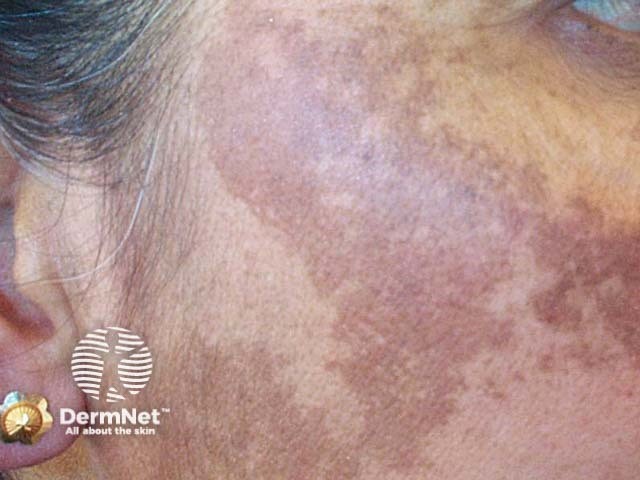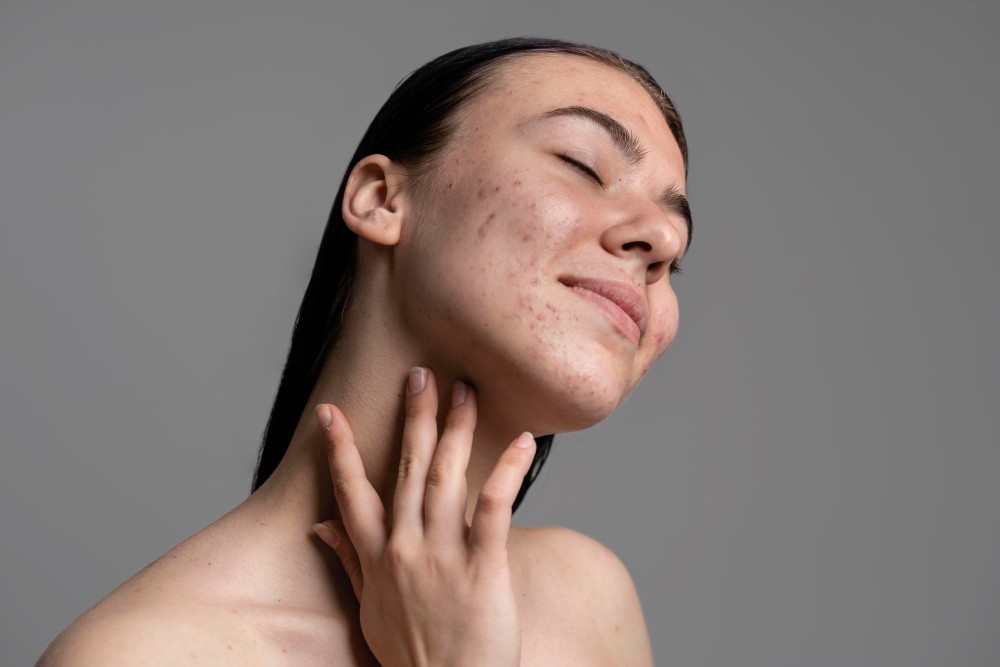Hyperpigmentation is a skin condition where certain areas appear darker than the surrounding skin. Although typically harmless, it can impact self-confidence. What causes hyperpigmentation, and how can it be treated? Here’s a comprehensive guide.
What is Hyperpigmentation?
Hyperpigmentation refers to a change in skin color caused by the overproduction of pigment in the skin. This excess pigment results in darker patches, leading to an uneven skin tone.
There are several types of hyperpigmentation, with the most common being:
- Melasma: Dark patches that appear on the face, neck, arms, or other parts of the body, either as spots or larger areas.
- Post-inflammatory hyperpigmentation: Dark spots or patches that form after skin inflammation or injuries, such as acne, irritation, or other skin conditions.
- Age spots: Small dark patches that generally develop in individuals over 40, appearing on the face, back of the hands, shoulders, or forearms.

Causes of Hyperpigmentation
Hyperpigmentation occurs due to an increase in melanin production, which can be triggered by:
- Exposure to certain antibiotics, antimalarials, anticonvulsants, and chemotherapy drugs can lead to hyperpigmentation as a side effect.
- Pregnancy, menopause, and the one caused by the use of contraceptives can alter hormone levels.
- Excessive UV radiation stimulates melanin production.
- Conditions like acne, eczema, cuts, insect bites, and friction can result in inflammation that triggers hyperpigmentation.
- Stress
Treatment for Hyperpigmentation
Although hyperpigmentation is usually harmless, those seeking to improve their skin tone can explore various treatment options. It’s advisable to consult a doctor for personalized recommendations.
Some treatments for treating hyperpigmentation include:
Topical Creams
Topical treatments with active ingredients can help brighten affected areas. Common ingredients include:
- Azelaic acid
- Vitamin C
- Hydroquinone
- Corticosteroids
- Retinoids (e.g., tretinoin)
- Arbutin
Creams containing hydroquinone or steroids may take 3 to 6 months to show results. However, these should only be used under a doctor’s supervision, as prolonged use can lead to irritation or inflammation.
Moisturizers
Using moisturizers with ingredients like glycerin, retinol, or hyaluronic acid can promote skin cell regeneration, enhancing the efficacy of other active ingredients.
Sunscreen
Daily sunscreen application with at least SPF 30 can prevent further darkening and improve existing hyperpigmentation. Use sunscreen even when indoors to protect against UV rays.
Cosmetic Procedures
Professional treatments such as laser therapy, microneedling, and chemical exfoliation can be effective for hyperpigmentation. Always consult a dermatologist to discuss potential side effects and recovery times before undergoing these procedures.
Hyperpigmentation is a common skin condition that can affect anyone. While not harmful, it can impact your appearance. If hyperpigmentation is a concern, consult a doctor for appropriate treatment options or use the Ai Care application’s consultation feature, available on the App Store or Play Store.
Looking for more information about other diseases? Click here!
- dr Hanifa Rahma
De Pietro, M. (2023). What You Should Know About Hyperpigmentation. Available from: https://www.healthline.com/health/hyperpigmentation
Mutcler, C. (2021). What Is Hyperpigmentation?. Available from: https://www.health.com/hyperpigmentation-8386761
Fisher, J. (2024). Demystifying hyperpigmentation: Causes, types, and effective treatments. Available from: https://www.health.harvard.edu/diseases-and-conditions/demystifying-hyperpigmentation-causes-types-and-effective-treatments
Sissons, B. (2024). What to know about hyperpigmentation. Available from: https://www.medicalnewstoday.com/articles/323808
Benjamin, J., Cherney, K. (2024). 8 Doctor-Approved Ways to Get Rid of Hyperpigmentation. Available from: https://www.everydayhealth.com/beauty-pictures/tricks-to-treat-hyperpigmentation.aspx












